Lee Bidgood, the first dean of the College, launched the undergraduate program in 1919. The first programs launched were specializations in accounting, banking and finance, business and law, commercial teaching, foreign trade and consular service, general business, manufacturing, public service, real estate and insurance, transportation, and wholesale and retail trade. In 1919, Lee Bidgood became the first dean of the College of Commerce and Business Administration.. Dean Bidgood served the boards of directors for many companies and worked on the behalf of civic and charitable organizations throughout his career. The Commerce Club was established in the fall of 1922 by students and professor H.H. Chapman. The Commerce Club “sought to advance the purposes of the Commerce School by creating a spirit of good fellowship and a closer affiliation among students of the school.” The initial members held biweekly meetings and hosted business leaders and instituted the inaugural Commerce Club banquet for students, faculty, and alumni to meet and exchange experience and ideas. To encourage interest in higher scholarship and college activities among commerce students, the Sigma Eta chapter of the Beta Gamma Sigma fraternity was established. The chapter was created largely by the efforts of Lee Bidgood, H.H. Chapman and Arthur Upgren and is recognized by the American Association of Collegiate Schools of Business. In 1924, the College of Commerce & Business Administration organized the first graduate programs. The first Master degree was awarded in 1924 as the Master of Science in Commerce. The Alpha Rho chapter of Alpha Kappa Psi was introduced to the University in 1924. The fraternity was originally created in 1904 at New York University and is considered to be the oldest of the professional commercial fraternities. Since their creation, they have continued to further the individual welfare of its members and annually award the most outstanding student in the commerce school with a loving cup. Delta Sigma Pi originated at the New York School of Commerce in 1907. A local chapter had been active on the University campus for some time when the Alpha Sigma chapter was established in April 1926. Throughout the years, Delta Sigma Pi has continued to encourage the collegiate study of business and the tradition of presenting a key to the senior with the highest academic standing. In the fall of 1928, construction was completed for the Commerce Building, the Commerce School’s first building, and opened for the fall semester. The Commerce Building was a dream of Dean Lee Bidgood’s and would later be named after him in 1952. The building originally housed 14 classrooms and multi-purpose rooms as well as 16 offices. The Commerce Building was dedicated on October 22nd, 1928 on the University’s Homecoming. In 1929 the School of Commerce and Business Administration become the 38th school to earn admission into the American Association of Collegiate Schools of Business (AACSB). Chi Theta was a professional fraternity for women organized in the Commerce School in 1929. In 1936 the local chapter affiliated with Phi Chi Theta, the national organization. The mission of the organization was to foster the study of commerce by women and award scholarships to female students who maintained high scholastic averages in their first three years of resident work. In November of 1930, Lee Bidgood and professor H.H. Chapman created the Bureau of Business Research as what Chapman described as “a vision of a state university as being a servant of the state – in providing inspiration and in being a service agency [for] making the state a better place in which to live.” The Center initially consisted of 4 main goals: Building research facilities, rendering aid to members of faculty, carrying on specific research projects, and acting as an agent in the dissemination of information to students and state citizens. The Bureau would later be renamed as the Center for Business and Economic Research. As enrollment increased, the need for more space became immediate and Dean Bidgood decided an expansion of the Commerce building was necessary. In September of 1939, the new wing of the Commerce Building held the business library, the Bureau of Business Research, a machine room for various bookkeeping machines and adding machines, and a break room used by faculty to write articles or books and to get away for a bit. To aid in Wartime efforts, Dean Bidgood, a member of the University’s National Defense Council Program, the Commerce School played an important role in training for the national defense programs on campus. Following World War II, there was an influx of GIs into the school. Dean Bidgood sought to expand the school’s graduate programs. Launched in 1944, the Master of Business Administration degree was launched, offering a different path for students wishing to obtain a master’s degree. Today, our MBA program is regarded as one of the top MBA programs in the nation. The National Accounting fraternity established a chapter at the Commerce School in 1948 with the goal “to encourage and foster the ideal of service as the basis of the accounting profession.” On May 14, 1949, Mr. A. E. Hohenberg of Memphis gave the principal address at the first annual Commerce Spring Frolics, and awards from various professional fraternities were presented. The night activities after the ceremony included a smoker in Morgan Auditorium, where professional fraternities presented humorous skits and Miss Executive Secretary of Commerce School was crowned. In the spring of 1950, a chapter of the Propeller Club was formed for students who were interested in the maritime transportation industry. It was a “national organization of ocean-shipping executives with student ‘harbors’ in universities that offer instruction in water transportation.” President Gallalee took advantage of the contingent gathered at the dedication of Bidgood Hall to announce the Commerce School would be launching a PhD program for students to earn doctorate degrees. In the spring of 1951, a group of business statistics students created Chi Alpha Phi, an organization for students interested in the application of statistical methods in the various fields of social and physical sciences. This group served the University by undertaking feasible projects requested by faculty, administration, and the Student Government Association. Along with the dedication of Bidgood Hall, President John Gallalee announced an expansion to the building. This would add 36,032 square feet of new space to an already existing 61,882 square feet. Completed in 1951, the addition would increase the size of the business library as well as house more classrooms and laboratories and double the number of offices. On Commerce Day and the 32nd Anniversary of the School of Commerce, February 15th, 1952, the Commerce Building was renamed Bidgood Hall after esteemed Dean Lee Bidgood. Originally proposed in October of 1949, the request was met with overwhelming support from the entire university. Founded by Lee Bidgood in the early 1950s, the Alabama Business Research Council developed effective ways in which a work and research team can bring together, through cooperating studies, facts and materials which will be useful in formulating policies bearing on the solution of economic problems. Catherine Miles was the first woman to receive a Ph.D. in accounting at the University of Alabama. She first enrolled at the University in 1936 and pursued a degree in Home Economics. After completing the degree and some time in the work force, she decided to return to academia. She went on to get her Master’s and PH.D. from the business college which led her into a career in higher education as a professor and administrator. Today, her portrait hangs next to Vivian Malone Jones on the lower level of Bidgood Hall. After being hand-picked by Dean Bidgood to teach accounting, Paul Garner turned down the numerous offers from other universities to teach at the School of Commerce in 1939. 1960s Vivian Malone, alongside James Hood, enrolled at The University of Alabama in 1963 becoming one of the first black students. Two years later she graduated from The University of Alabama with a degree in general management, Malone went on to become the director of the Office of Environmental Justice for Region IV, Environmental Protection Agency, in Atlanta. Today, Malone’s portrait remains on the lower level of Bidgood Hall next to Catherine Miles. Dr. Lena Prewitt joined the college in 1970 as one of the first black faculty members. Dr. Prewitt taught management had a lasting impact on many of her students. Jack Fielden was named the third dean of the Commerce and Business Administration. The Manpower Institute was instituted in 1972 in the early days of Jack Fielden’s deanship. It was ran by Chuck Odewahn and Allan Spritzer who submitted grant proposals for the institute and helped in the circulation of research. In 1975, Trevor Bain joined as research director of the institute and then later became the director of the institute. The primary purpose of the institute was to encourage faculty research in manpower, industrial relation, and human resources. The Management Institute was started in 1972 as a request by the federal department of Health, Education, and Welfare (HEW) to do management training. It was a four week program ran by Lonnie Strickland and a graduate student at the North River Yacht Club. Dean John Fielden introduced the Master of Tax Accounting (MTA) degree to the College of Commerce and Business Administration in 1977, adding to an impressive list of degrees. In July of 1978, the School of Accountancy was established as an academic unit of the College of Commerce and Business Administration. Later, the school would be named the Culverhouse School of Accountancy after a generous donation from alumnus Hugh Culverhouse. Serving as an interim dean while the search committee looked for a replacement for Jack Fielden, Edward Smith led the college into the 1980s. H.H. “Bill” Mitchell accepted a five-year appointment as dean after the untiimely death of Dr. Kenneth Uhl, the search committee’s choice for dean in 1980. Mitchell continued his storied career at the College of Commerce and Business Administration from 1935 as an undergraduate student until 1986 upon his retirement as dean. Russ Petersen helped the college maintain its high standard through his understanding of what the national standards were. His policies were favored by many, especially his Faculty Scholars Program. In 1987, the Culverhouse College of Commerce renamed their graduate division to The Manderson Graduate School of Business in recognition of Lewis Manderson’s generous $1 million donation to the school. Dean Barry Mason became the College of Commerce and Business Administration’s seventh dean in 1988 and served as dean for 23 years. His term is remembered by his commitment to “good teaching at all levels,” and a genuine love for the college. Dean Mason was a member of faculty since 1967 and served as head of the Management and Marketing department for 16 years. He was instrumental in the establishment of multiple outreach centers and institutes seeing them as a natural growth of and adjunct to a committment to work with the private sector as well as to support and accelerate economic development. The Culverhouse School of Accountancy established the S. Paul Garner Center for Current Accounting Issues in 1988. It was used in fostering and enhancing accounting research and education by acting as a focal point for scholarly activities and providing a vehicle for faculty efforts to address accounting issues. It provided financial support for faculty research, administers professional development programs, and developed and managed seminars and workshops. In February of 1989, Commerce School alumnus Hugh F. Culverhouse donated $3 million to the School of Accountancy and later received naming rights of the school. Dreams of a new business library and computer center for the business college finally became a reality in 1994 with the generous donation of $4 million from Mr. Bruno and $3 million from Mr. Bashinsky, both non-alums from Birmingham. The new state-of-the art business library and computer center opened the doors to the $8.5 million Angelo Bruno Business Library and the Sloan Bashinsky Sr. Computer Center in January of 1994. Others who made a significant contribution to the new buildings include the Charles Anderson family, Dr. and Mrs. William R. Bennet, Emeritus Professor of Marketing (Tuscaloosa), and Compass Bank. The STEM Path to the MBA was introduced to the University to allow high-achieving undergraduate students majoring in STEM disciplines to complete coursework to earn an MBA from the Manderson Graduate School of Business in only one calendar year beyond the completion of an undergraduate degree. The Marillyn A. Hewson Data Analytics opened in 2015 with Lockheed Martin, Healthcare Business Solutions and SAS as partners. The Lab provides collaboration among students, faculty and corporate partners to issues facing businesses globally. 2016 marked the year the college hired its first female dean, Kay Palan. Launched in Fall 2016, the CREATE Path to the MBA was created for high-achieving undergraduate students majoring in traditionally creative disciplines, giving them the opportunity to complete coursework to earn an MBA from the Manderson Graduate School of Business in only one calendar year beyond the completion of an undergraduate degree. The college is the first to offer a Value Investing specialization at both the graduate and undergraduate level and opened a Value Investing Research Library and Trading Floor in 2016, which was donated by CT Fitzpatrick. The Interactive Decision Experiment (TIDE) Lab opened in 2018 at Culverhouse College of Business, University of Alabama. It is a behavioral research facility dedicated to studying human behavior in business contexts. The lab features computer labs, breakout rooms, a shopper insights lab, and a virtual reality lab. On September 28th, 2018, Dean Kay Palan announced the newest addition to the Culverhouse campus, Hewson Hall. The building was named after distinguished alum Marillyn A. Hewson and will hold classrooms, large lecture halls, boardrooms and faculty/staff offices. The Institute of Business Analytics at The University of Alabama’s Culverhouse College of Business received a nearly $1 million grant from the U.S. Department of Justice to create UNLOCK — the Unified Nexus for Leveraging Opioid Crime Knowledge. This data-driven platform will help law enforcement, public health officials, and community partners better understand the scope of the opioid crisis in Alabama. By integrating data from sources like toxicology reports, evidence tests, and coroner records, UNLOCK will deliver actionable insights to support smarter, more effective responses to opioid-related challenges statewide. In early 2018, the business college at The University of Alabama announced that it was implementing its new name: Culverhouse College of Business. This name change was approved by The University of Alabama Board of Trustees and other parties, including the Culverhouse family, which has been a longtime supporter of the college. In 2019, the Culverhouse College of Business celebrated its centennial year, marking 100 years since its founding in 1919. To honor this milestone, Culverhouse launched special initiatives and events to engage alumni, students, and friends, while highlighting its rich history and ambitious future. The celebration also showcased plans for Hewson Hall, a state-of-the-art facility designed to support the College’s growth and continued leadership in business education and research. The EDGE, a 26,000-square-foot business incubator, opened on February 6, 2019, through a partnership between UA, the City of Tuscaloosa, and the Chamber of Commerce of West Alabama. Located downtown, the $11.7 million facility offers workspace, events, and resources to support local entrepreneurs and startups. For 35 years, Dr. Subha Chakraborti has advanced statistical research worldwide. His achievements earned him one of UA’s highest honors: the Burnum Distinguished Faculty Award, recognizing excellence in research, scholarship, and teaching. Culverhouse launched the UA Business LEAD program in fall 2020 to prepare students for the workforce by developing 10 core competencies aligned with national career readiness standards, including teamwork, critical thinking, problem solving, ethics, and global engagement. Students earn points through workshops and experiences, and build e-portfolios showcasing their work beyond resumes. The program continues to grow, adding internship tracking and expanding corporate partnerships. LEAD provides valuable professional development, helping students build skills, gain experience, and connect with employers to enhance career readiness. The University of Alabama launched its Rising Tide capital campaign in September 2021 with a goal of raising $1.5 billion. This campaign aimed to boost student scholarships, faculty endowments, research initiatives, and campus facilities. Fueled by strong alumni and donor support, Rising Tide set the stage to advance UA’s mission and enhance opportunities across academics, athletics, and campus life. On Sept. 9, 2021, the Culverhouse College of Business celebrated the grand opening of Hewson Hall, a 108,000-square-foot facility made possible by a $15 million gift from alumni Marillyn and James Hewson. The $60 million building features high-tech classrooms, collaboration spaces, and dedicated areas like the Alabama Business Hall of Fame and the First-Gen Spot. Designed to support student success and growth, Hewson Hall now anchors the western edge of UA’s campus. Thanks to a generous gift from Walker Jones and her husband Bill, Hewson Hall is now home to the Walker and Bill Jones First Generation Spot. This dedicated space supports first-generation students by providing a place to connect, collaborate, and build community. Named in honor of Bill’s own first-gen journey, The Spot reflects the Joneses’ commitment to helping students thrive at UA. Leveraging the renowned faculty and expert partners of The University of Alabama’s top-rated Culverhouse College of Business, the Executive Education at Culverhouse program offers decision-makers and senior practitioners a unique opportunity to gain hard skills and deep knowledge that will allow them to make transformative impacts within their organizations. For the first time, the Culverhouse College of Business ranked among the top 100 North American business schools in research productivity, according to the University of Texas at Dallas. Culverhouse placed 96th overall and 88th in the U.S.—the only Alabama business school on the list. Dr. Anup Agrawal, professor and William A. Powell Jr. Chair of Finance and Banking with The University of Alabama Culverhouse College of Business, is the recipient of the 2021 Burnum Distinguished Faculty Award. Awarded annually to recognize and promote excellence in research, scholarship and teaching, the Burnum Award recognizes distinguished careers at UA. The Angelo Bruno Business Library and Sloan Y. Bashinsky Lab underwent a comprehensive renovation that began in January 2022. Updates included new paint, carpet, ceilings, light fixtures, and improvements to the sprinkler and HVAC systems. The building reopened for the Fall 2022 semester. Launched in Fall 2023, Culverhouse’s business cybersecurity major blends technical training with business strategy. Students learn to manage risk, respond to threats, and align security with organizational goals—preparing for roles like cybersecurity analyst and tech auditor. The Shin Gallery was rededicated in 2023 to honor Yong Ho Shin (1917–2003), founder of Kyobo Life Insurance and a visionary leader in post-war Korea. Through a friendship with UA’s Dr. John Bickley, Shin helped establish the Insurance Hall of Fame Museum at Culverhouse in 1992. The gallery and a scholarship in his name continue to support Korean students and celebrate his lasting impact on industry and education. On October 10, 2023, Culverhouse rededicated the Insurance Hall of Fame Museum in Hewson Hall’s Don James Quiet Study, celebrating its rich legacy in insurance education and honoring industry pioneers. In 2022, the Deshe family gave $1.1 million to kick off the $4 million campaign to renovate Mary Hewell Alston Hall. A ribbon-cutting celebrating the completed renovation was held in October 2023. The Institute of Data and Analytics (IDA) at Culverhouse College of Business was named one of AACSB International’s “Innovations That Inspire” for 2024. This global recognition highlights IDA’s pioneering, data-driven approach to combating the opioid crisis through the Southeast Regional Drug Data Research Center (SR-DDRC), funded by a $3.5 million DOJ grant. By integrating drug-related data from multiple public and private sources across 17 southern states, IDA is driving impactful collaboration and innovation to address a critical societal challenge—demonstrating how business education can create real-world value for communities. In 2024, building on remarkable success and surpassing its initial goal early, UA announced Rising Tide 2.0—an expanded campaign target of $1.8 billion to be reached by September 2026. With over 160,000 donors contributing so far, the campaign continues to drive investments in scholarships, faculty, research, and facilities, ensuring sustained growth and innovation at the University. Launching in Fall 2024, the Bachelor of Science in Business Statistics at Culverhouse equips students with in-demand skills in statistical analysis and data-driven decision-making. With a focus on applied methods and real-world business applications, graduates will be ready to deliver immediate value in roles that require interpreting and leveraging data for smarter outcomes. Culverhouse College of Business has expanded its outreach in Selma, Alabama, supporting local businesses and community projects. Selma native and Culverhouse alum Preston McGee now leads these efforts as community outreach coordinator for the Selma Resilience Initiative. McGee, who holds business degrees and an MBA from Culverhouse, will build partnerships across UA and work from his office in Selma at the Dallas County System of Services. The Burnum Distinguished Faculty Award honors excellence in research, scholarship, and teaching at The University of Alabama. Culverhouse’s Dr. Dan Bachrach, professor of management and Robert C. and Rosa P. Morrow Faculty Excellence Fellow, received the 2024-2025 award. His research focuses on entrepreneurial teams, leadership, and organizational behavior. Starting Fall 2025, the Manderson Graduate School of Business will launch five new Graduate Certificate programs: Business Cybersecurity, Data Analytics, Digital & Social Media, Information Systems Solutions, and Supply Chain Analytics. These certificates provide a focused and efficient way to build specialized skills, enhance your graduate degree, and gain a competitive edge in today’s rapidly changing business landscape. Launching in Fall 2025, the Culverhouse College of Business will introduce a new undergraduate major in Real Estate, building on one of the largest and fastest-growing real estate programs in the nation. With over 900 students in the minor and strong graduate-level interest, the major will offer three tracks—Finance and Investments, Development and the Built Environment, and Brokerage and Management—preparing students for careers across the industry. The program includes opportunities to earn professional credentials and licensure alongside academic coursework, positioning Culverhouse as a national leader in real estate education.1919
Undergraduate Program Launched
January 1, 1919
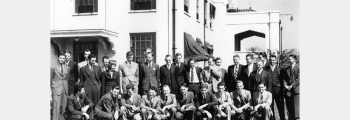
Bidgood Becomes First Dean
February 1, 1919

1920s
Commerce Club Established
August 1, 1922
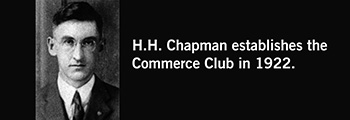
Beta Gamma Sigma Chapter Established
September 4, 1923

Graduate Program Launched
January 1, 1924

Master of Science in Commerce Awarded
May 9, 1924

Alpha Kappa Psi Chapter Established
September 25, 1924
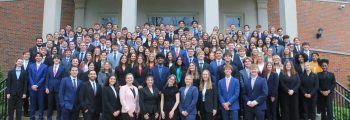
Delta Sigma Pi Chapter Established
April 12, 1926
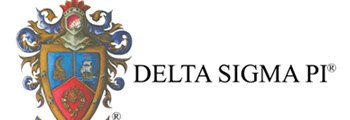
Commerce Building Opens
August 1, 1928

First Accreditation
June 28, 1929

Phi Chi Theta (Chi Theta) Chapter Established
September 19, 1929

1930s
Bureau of Business Research Established
November 1, 1930

First Real Estate Graduate
November 3, 1930

Secretarial Work Added as a Major
April 12, 1936
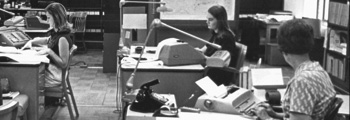
Statistics Added as a Major
April 20, 1937

Commerce Building Addition
September 1, 1939

1940s
Military Training Program Administered
July 1, 1941

MBA Program Launched
September 1, 1944

Beta Alpha Psi Chapter Founded
September 8, 1948

First Annual Spring Frolics
May 14, 1949
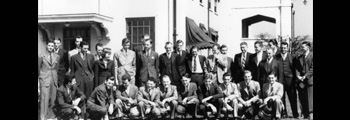
1950s
Propeller Club
April 2, 1950

PhD Program Launched
August 1, 1950

Chi Alpha Phi Created
February 15, 1951
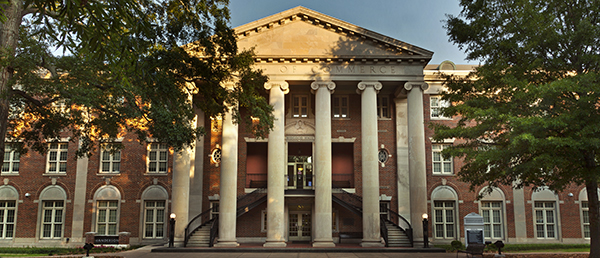
Bidgood Hall Expansion
August 28, 1951

Commerce Building Renamed
February 15, 1952
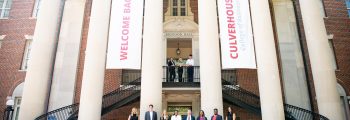
Alabama Business Research Council Founded
September 10, 1953

Catherine Miles Receives First PH.D.
December 12, 1953
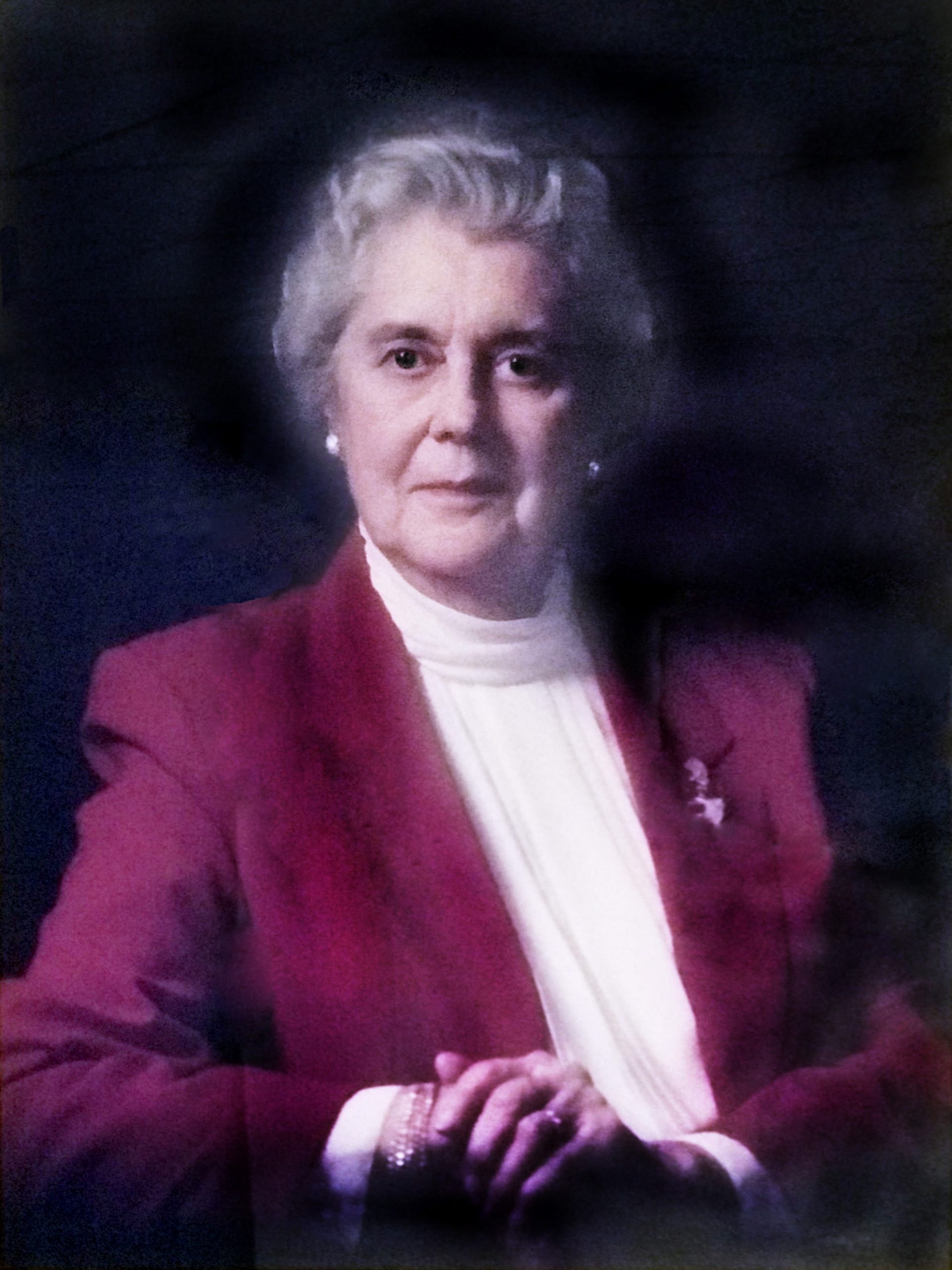
Garner Named Second Dean
August 1, 1954

1960s
Marketing Added as a Major
May 21, 1960
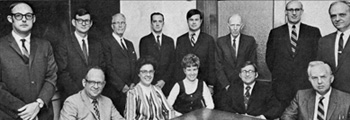
Vivian Malone’s Enrollment
June 11, 1963
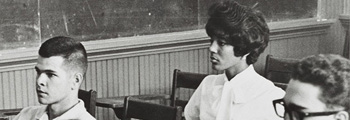
C&BA Becomes a College
August 16, 1969

1970s
Lena Prewitt Joins Faculty
September 2, 1970

Fielden Named Third Dean
August 22, 1971

Manpower Institute Introduced
February 16, 1972

Management Institute Started
November 10, 1972

Master of Tax Accounting Degree Introduced
September 29, 1977

School of Accountancy Established
July 3, 1978

1980s
Edward Smith Named (Fourth) Interim Dean
August 28, 1980

Mitchell Becomes Fifth Dean
January 15, 1981

Five-year Master of Accountancy Introduced
February 16, 1984
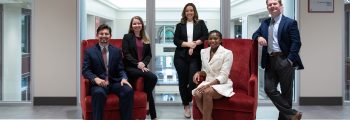
Executive MBA offered at UA
December 18, 1985

Peterson Named Sixth Dean
August 12, 1986

Manderson Graduate School of Business Named
November 3, 1987
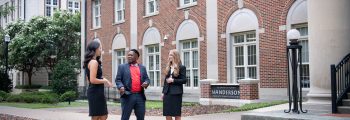
Mason Named Seventh Dean
August 1, 1988

The S. Paul Garner Center for Current Accounting Issues
December 12, 1988
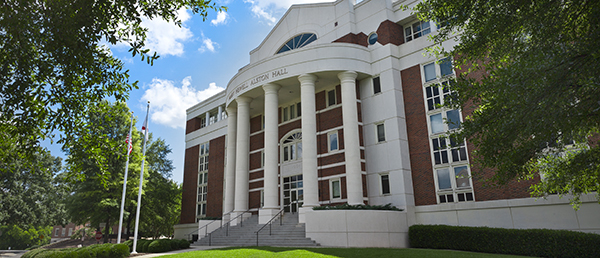
School of Accountancy Named After Culverhouse
February 15, 1989

1990s
Bashinsky Computer Lab and Bruno Library Donation
January 20, 1994
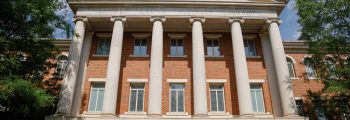
Alabama Center for Real Estate Founded
March 4, 1996

2010s
Hardin Named Eighth Dean
August 16, 2011

STEM Path to the MBA Introduced
December 18, 2011
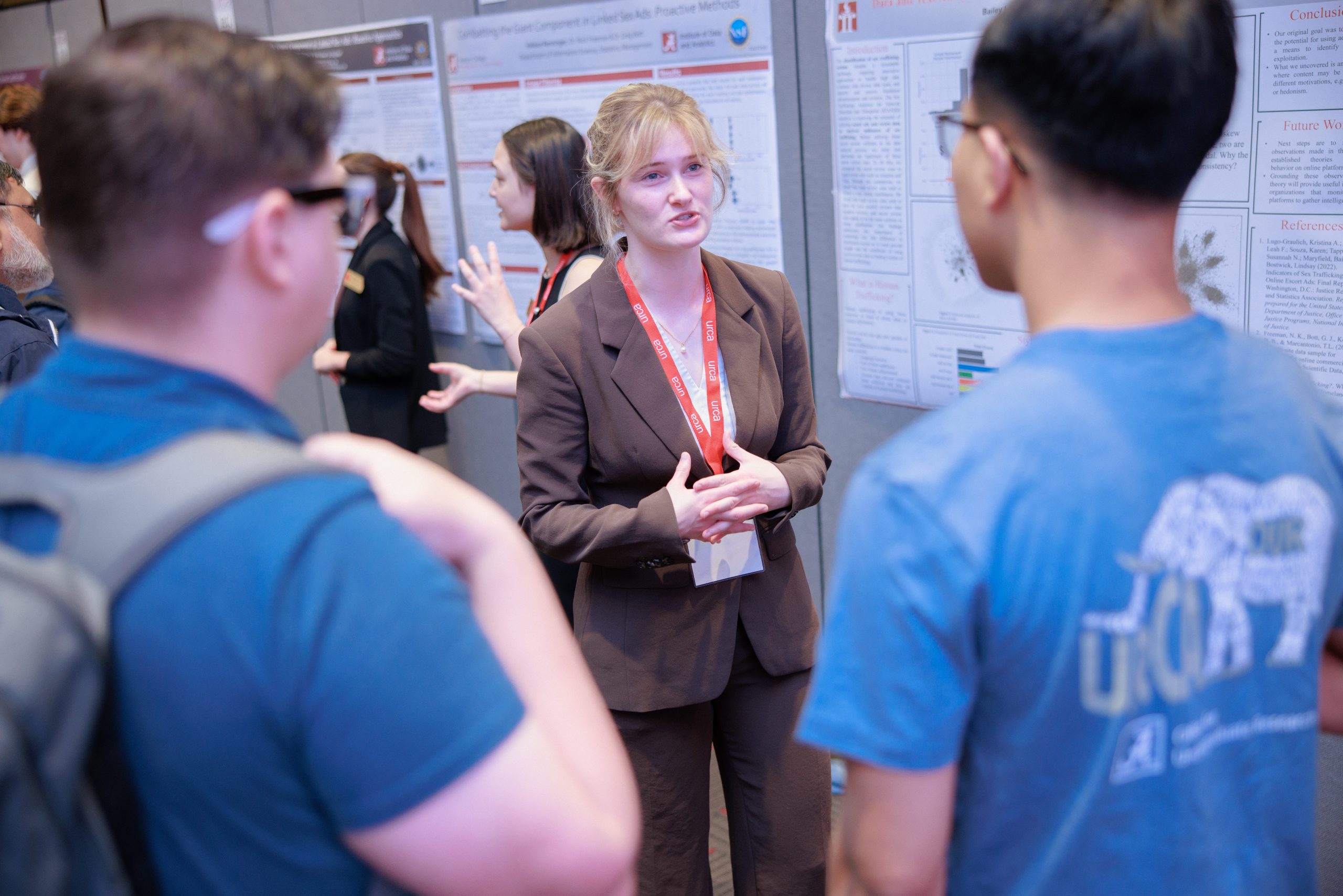
Marillyn A. Hewson Data Analytics Lab
December 18, 2015

Palan Named Ninth Dean
July 1, 2016
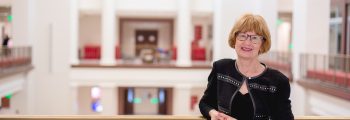
CREATE Path to the MBA Introduced
December 18, 2016

Vulcan Value Research Library
December 18, 2016

TIDE Lab Opens
August 1, 2018
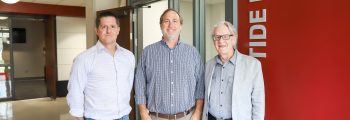
Hewson Hall Announced
September 28, 2018
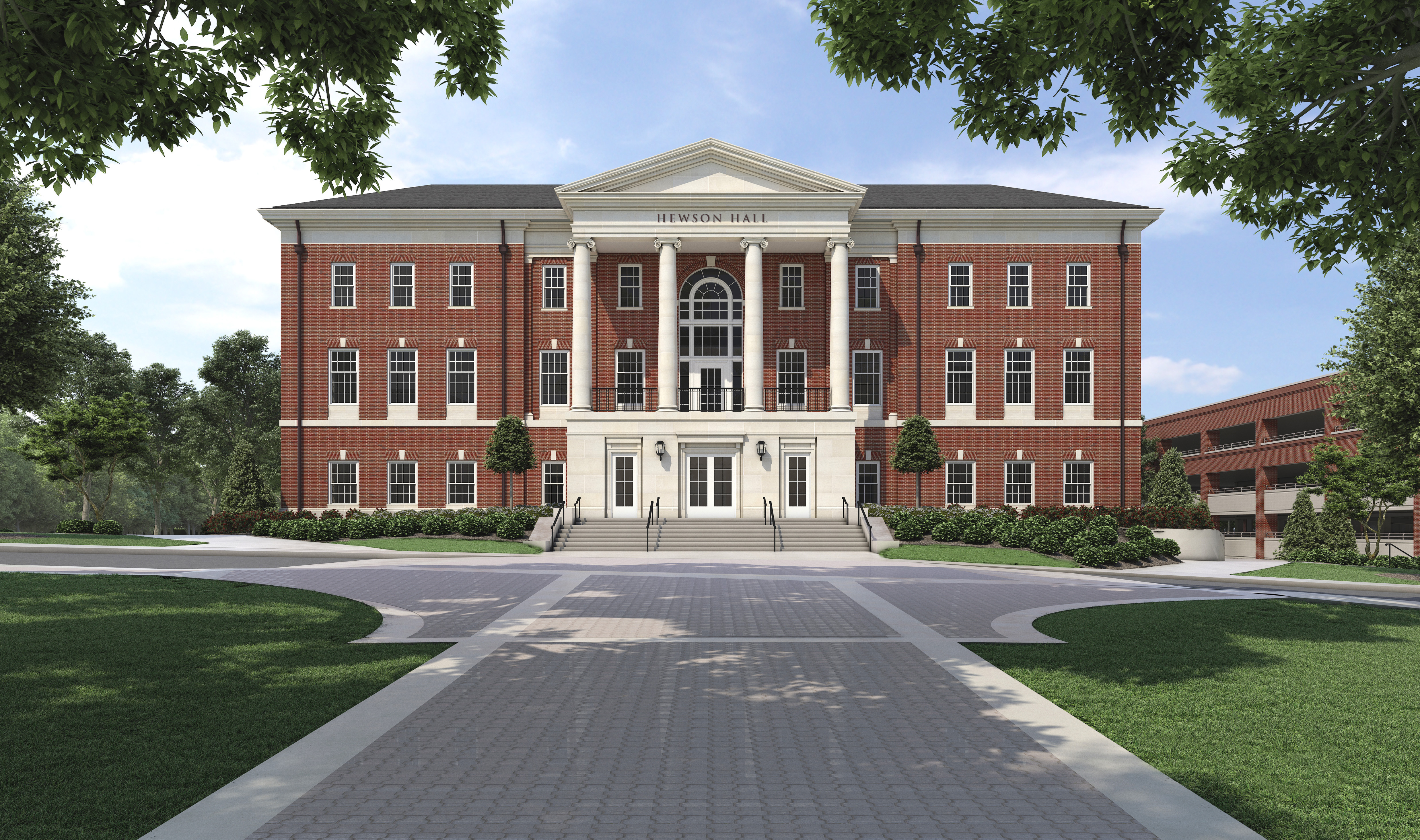
Data-driven UA Team Wins $1M Grant to Develop Opioid Abuse Tool for Law Enforcement and Community Partners
October 11, 2018
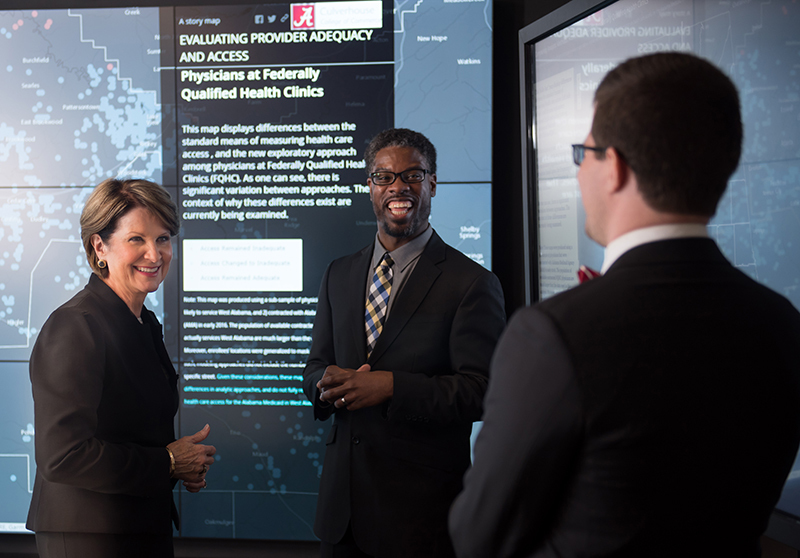
New Name for the Business School
December 18, 2018

Culverhouse to Celebrate Centennial Year in 2019
January 1, 2019

Tuscaloosa’s EDGE Opens Doors to Area Entrepreneurs and Innovators
February 6, 2019
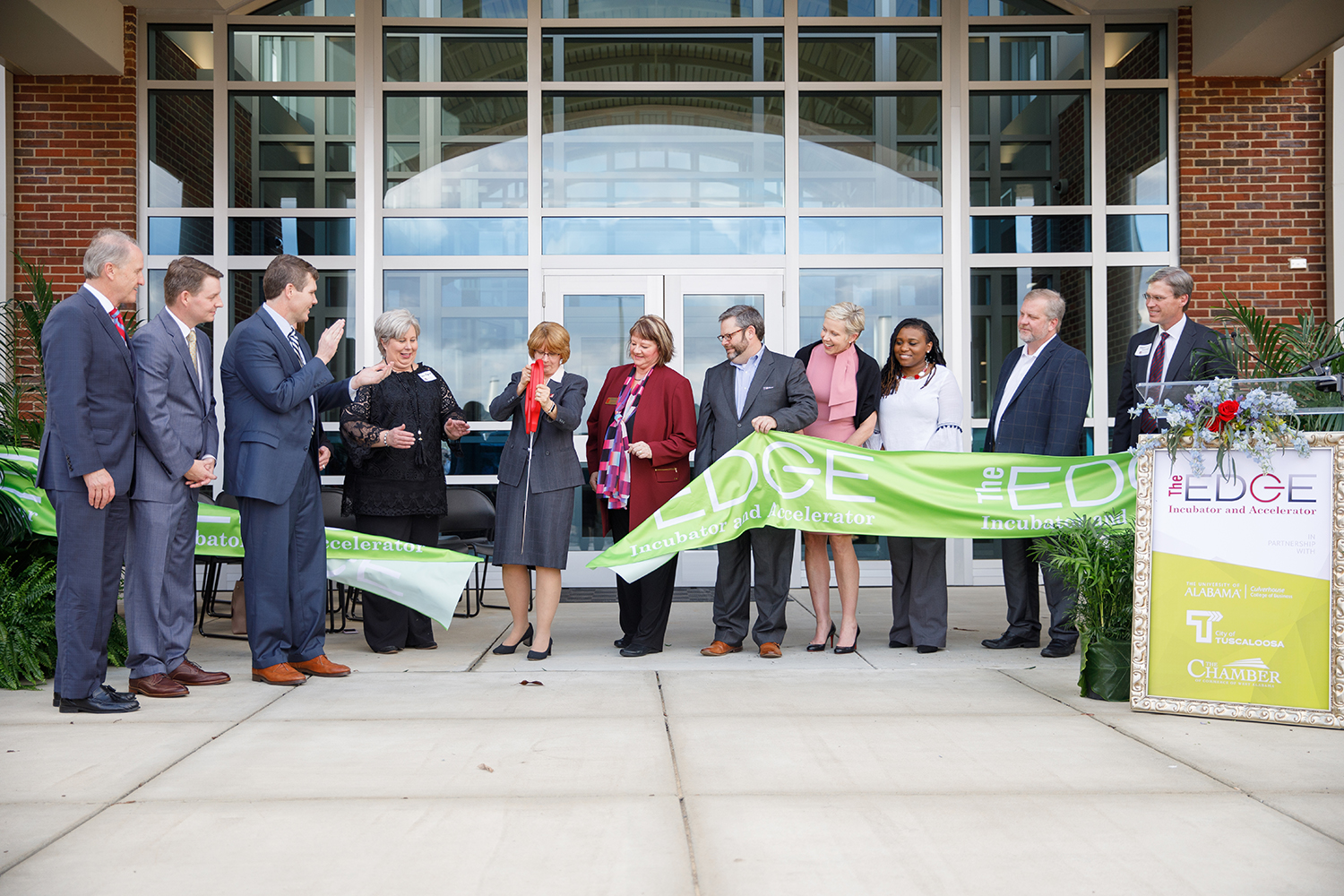
Dr. Subha Chakraborti Wins Burnum Award
April 25, 2019
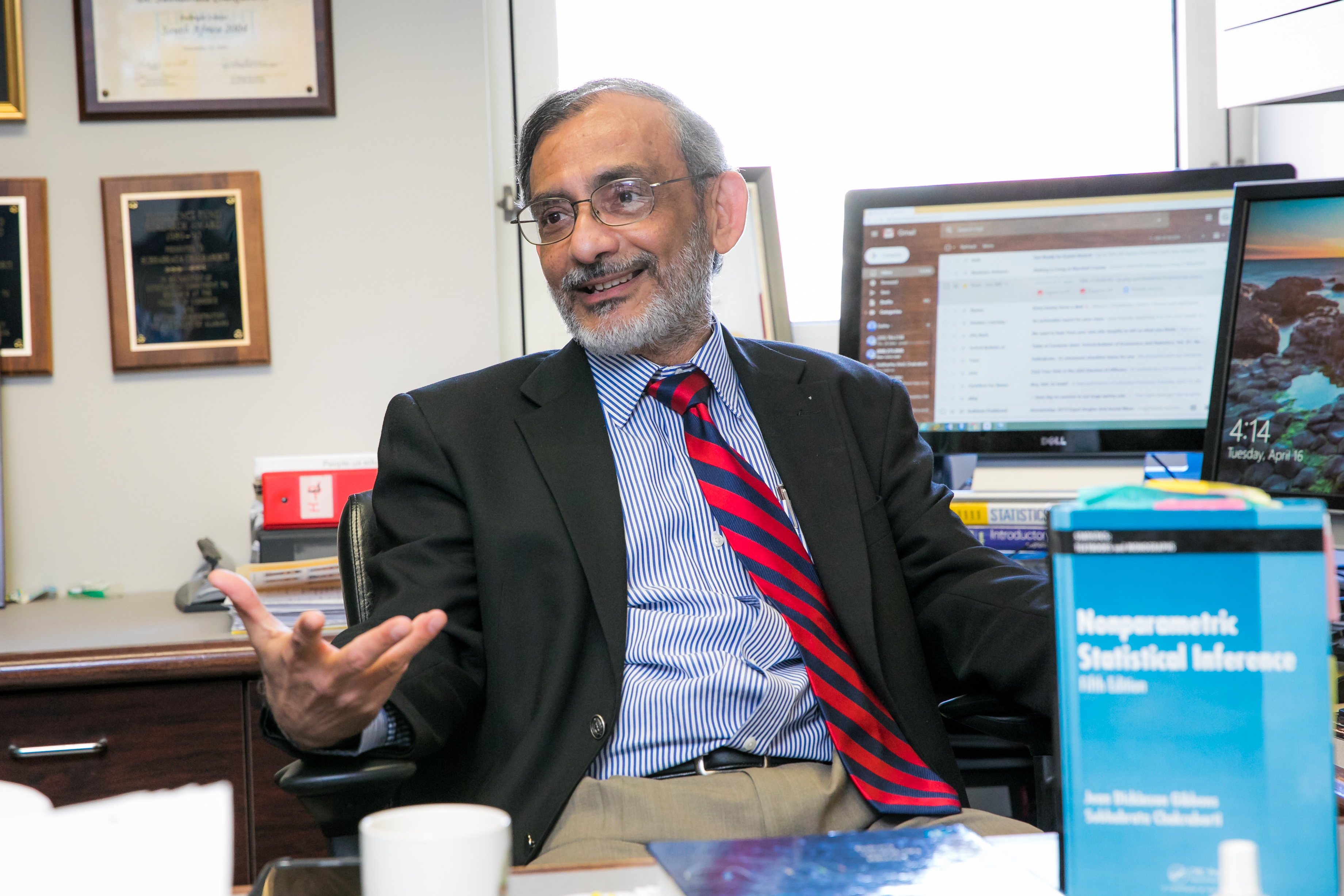
2020s
Launch of UA Business LEAD
August 1, 2020

Rising Tide Capital Campaign Launch
September 1, 2021

Hewson Hall Ribbon Cutting
September 9, 2021
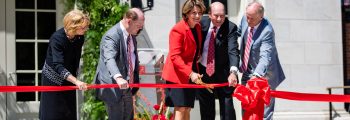
The Walker and Bill Jones First Generation Spot
November 8, 2021
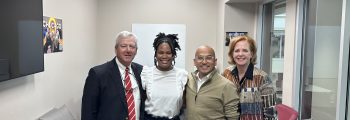
Culverhouse Debuts Executive Education Program
December 2, 2021
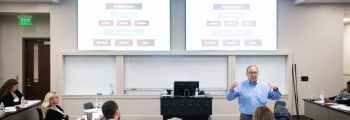
Culverhouse Makes UT Dallas B-School Research Productivity Ranking List
March 30, 2022

Dr. Anup Agrawal Honored with Burnum Award
April 25, 2022

Angelo Bruno Business Library and Sloan Y. Bashinsky Lab Under Renovation
August 1, 2022

Cybersecurity Major
August 23, 2023

Shin Gallery Ribbon Cutting
October 3, 2023

International Insurance Society Insurance Hall of Fame Ribbon Cutting
October 10, 2023
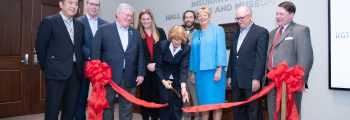
Deshe Family Cuts Ribbon on New Alston Facilities
October 20, 2023

IDA-led Project Selected as AACSB “Innovation That Inspires”
February 13, 2024

Rising Tide Capital Campaign 2.0
March 1, 2024

Business Statistics Major
August 21, 2024

Selma Resilience Initiative
September 17, 2024

Dr. Daniel Bachrach Receives UA Burnum Award
April 29, 2025
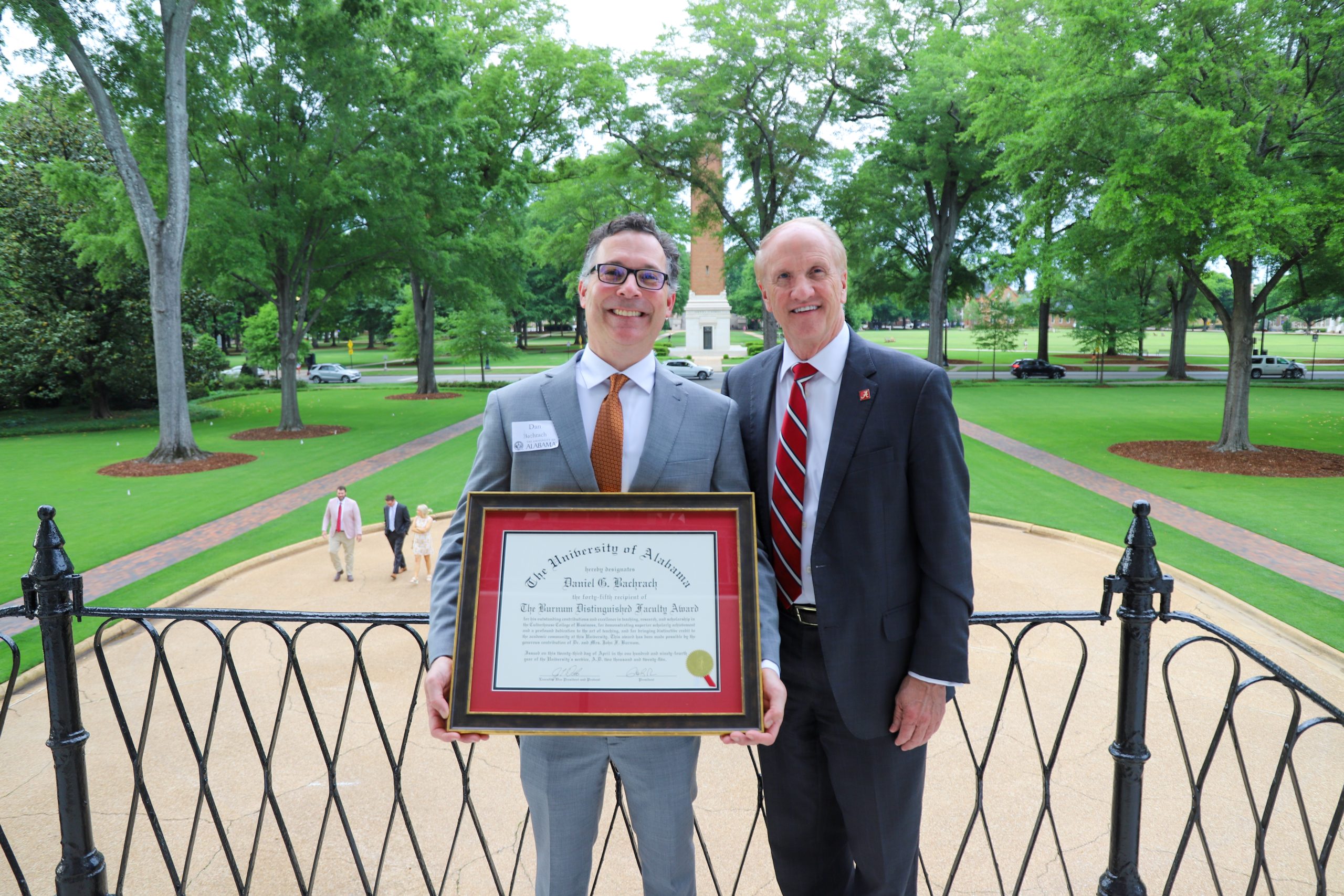
Manderson Graduate Certificates Launch
August 20, 2025

Real Estate Major
August 26, 2025
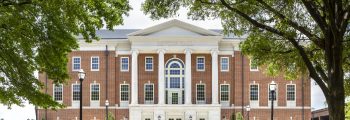
This website uses cookies to collect information to improve your browsing experience. Please review our Privacy Statement for more information.